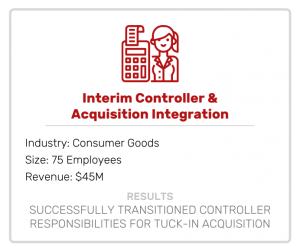
Even as the finance and accounting industry comes to rely more heavily on technology, the old-fashioned paper résumé remains a central component of the hiring process. We all know what to avoid – the obvious résumé mistakes such typos, glaring grammatical errors, incorrect contact information, etc. have long been revised out of our final product. You have even included keywords and highlighted your soft skills.
So why are you still not getting hired?
There are many small, often-overlooked errors that stand out to hiring managers, who routinely go through hundreds of résumés in one sitting. We’ve compiled a list of these insidious little oversights that may be keeping you from landing the job you deserve.
Your résumé is a showcase of your professional writing skills, and should be considered a formal business document. While you may think you are avoiding long sentences and saving valuable space by using shortcuts like “etc.,” “asst.,” and “assoc.,” you are in fact conveying laziness and a lack of professionalism to your potential employers. So leave the abbreviations for your notes, and remove them from your résumé.
To include an objective statement, or not to include an objective statement? For that is the question that everyone seems to be debating. The consensus from most hiring managers, however, is that it simply isn’t necessary when the purpose of your résumé is clear and focused. Furthermore, everyone knows you will provide references upon request. You don’t need to include this in your résumé. Using generic, unnecessary language simply because everyone else is doing so will only distract from your more meaningful content, and take up valuable space on your résumé.
One of the most insidious résumé mistakes is not your writing, but your formatting. It doesn’t matter what you bold, so long as you bold it consistently. If you are bolding your job titles, bold all of your job titles. If you are italicizing your place of work, italicize all of your places of work. Take the extra time to ensure that your spacing is even and consistent. Your hiring managers will thank you. Maybe not verbally, but you get the idea.
If your bullet points are short statements and not complete sentences, do not end them with a period. Period.
Example:
Notice the difference? Good. Please do not commit this cardinal sin of résumé writing again.
This seems simple, but you may be surprised at how often you find yourself committing this seemingly-small grammatical mistake. Here’s a test – go through your most recent résumé and see how often your verbs for past positions are in the present tense, for example “managing the office budget” versus “managed the office budget” (and, while your at it, check for any punctuation mistakes like those mentioned above). If all of your tenses are completely correct, congratulations! You are a résumé writing rock star! If not, now is a great time to address those little quirks.
A second, and equally important grammatical consideration is consistency in your subject verb agreement and your past and present tenses. For example, if you begin a sentence in the past tense, make sure all of your subsequent verbs are also in the past tense. The same goes for the present tense.
But enough of grammar school! Your résumé is one of the most powerful tools you have in your job search. We hope these tips will help you write a strong, error-free résumé that engages and impresses your future supervisors.